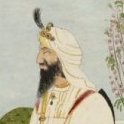-
Topics
-
-
Posts
-
the whole 'your husband/wife is chosen for you'/sanjog thing is real, it's just that a lot of people end up marrying the wrong person. they did not end up with the person that was meant for them. my friend, you should marry someone who you feel a connection with and love. there are millions of sikh girls, i'm sure you can find someone who aligns with your sensibilities and who you can truthfully say that you love. sikhi does not say anything against love marriages. you can also be in a loveless arranged marriage which is a safe option b/c both families are more inclined to keep the union intact. i was one of those people who was like meh, i guess i'll just get arranged to some sikh. well i finally started dating for the first time this year and i'm getting married to someone that i love and cannot even imagine leaving. i think it's better to have lost & lost than never loved at all. unfortunately, a lot of people confuse love w/ looks & lust. a lot of men go for the fittest girl they can find and think they won the jackpot or something. in reality, your partner should be like an extremely loved best friend. there's a reason why it's a fact that the most stable and long-lasting relationships started as friendships. i also think a lot of women are petty and divorce over small reasons, but there's other terrible things like high cheating rates as well. that's why the divorce rate in the west is high. be careful out there.
-
andrew tate praises sikhi too & likes sikhs. his brother also donated to sikh families iirc. they just like any "alpha" religion and tbh islam is the most "alpha" in their eyes. islam is very good at promoting that image. but imo a real alpha man doesn't command respect by beating up his wive(s) or forcing them to wear a burqa. a real man will have his woman listen to him w/o raising a hand or his voice, and command respect by being respectful. he leads by example and integrity. that's true masculinity. you get the idea. + yes, it's definitely true that islam is growing rapidly and making massive inroads. strength in numbers + belief will do that. but rlly it's just because of the birth rate. a lot of them are muslim b/c it's their "identity" just like how a lot of young sikhs will say they're "culturally sikh" or whatever. there just aren't billions of sikhs who lambast their identity everywhere and have strict and linear rules like in islam. besides, the reality is that islam and its followers are some of the most morally bankrupt. you can see all the weird trans rules in iran, bacche baazi in afghanistan, visiting brothels, watching p*rn, p*dophilia what goes on behind the scenes in countries like uae & qatar, etc, and come to your conclusions. you can google all the stats yourself and see which countries do the most of these ^.
-
stop associating with hinduism, that's the absolutely worst thing you can do as a sikh. not sure if you noticed but the entire world looks down upon and spits at india & hindus, literally no one respects them and considers them weak and cowardly. literally 1+ billion of them but not perceived as a strong religion commandeering respect.
-
you wrote a whole lot but told us nothing. what exactly did you do wrong to make you feel this way?
-





Recommended Posts
Join the conversation
You can post now and register later. If you have an account, sign in now to post with your account.